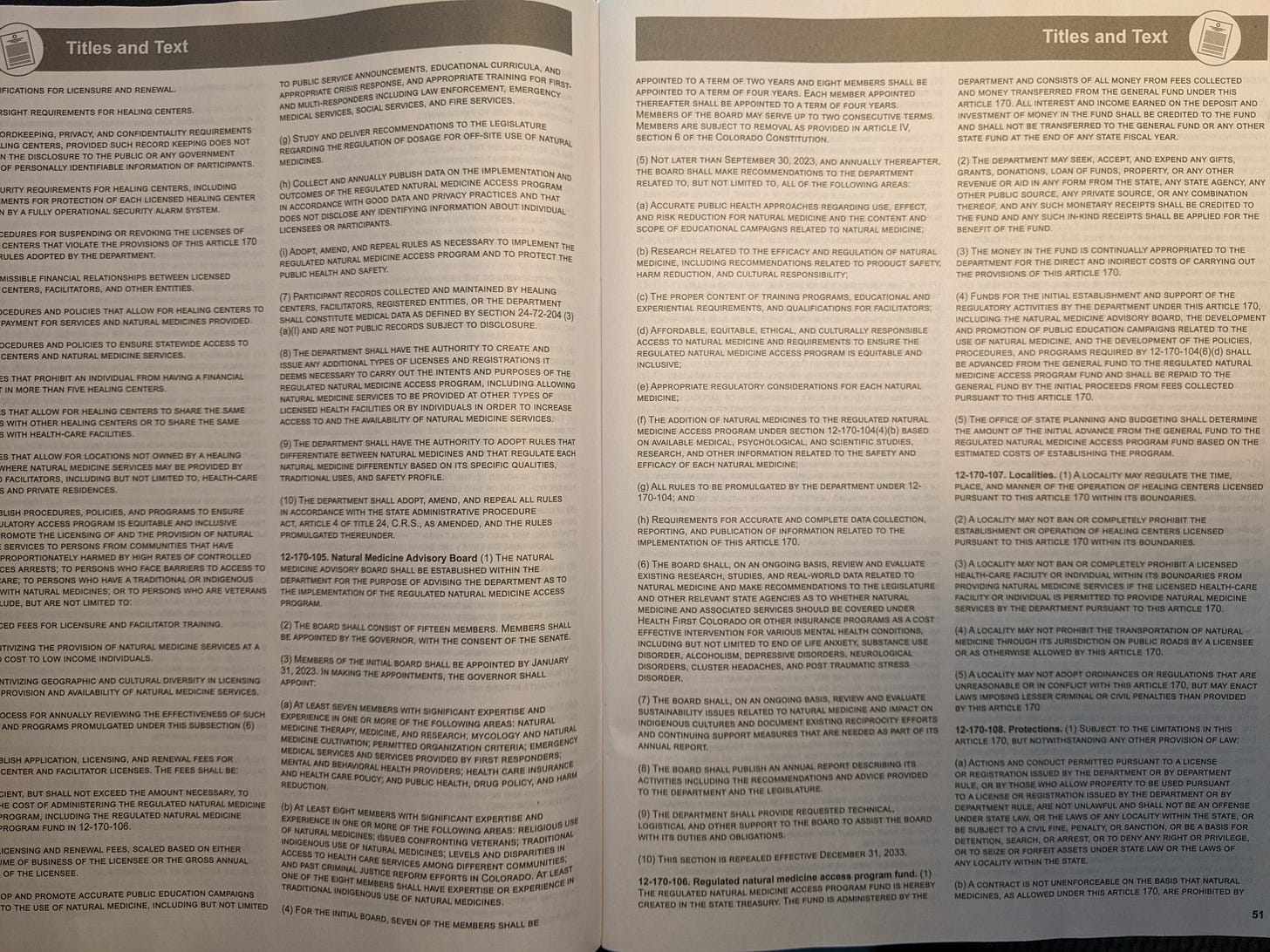Why Do Cities Blame Their Customers When Things Don't Work?
A culture of serving the customers of cities must replace today's habit of blaming them.
“Ask not what you can do for your city; ask what your city can do for you.”
– Startup Cities JFK
Local elections approach, which can only mean one thing: I’m mailed over 100 pages of legal text printed in all caps and in a tiny, unreadable font.
In theory, this document informs me.
In practice, it creates jobs at the local recycling center.
When I inevitably don’t read this document, am I to blame? Am I a bad citizen of my city? Am I lazy? Ignorant? Apathetic? A patsy of special interests?
Many would say yes.
But why should cities demand so much of their customers?
“Learn More!” “Get Involved!”
Many civic tech activists and city leaders repeat a mantra: citizens must know more and get more involved in the management of their city. The success of our city, such people say, depends on getting informed and getting involved.
Intellectuals love this mantra, too. Former Harvard president Derek Bok argues that communities are “a collective venture which falters or flourishes depending on the efforts citizens invest in its behalf.” (Bok then blames “poor and working Americans” for their “unwillingness” to invest time and effort to make their communities better. 🤷)
I hear this mantra at least once a month when someone asks me to write free code for some civic tech app. The argument is always:
Voters know nothing about anything. So we must build apps that give them information!
Voters don’t volunteer to fix their city’s problems. So we must build apps to make people do the things I want!
Projects like these come from a public-spirited place. I’m not knocking the positive motivation. But… aren’t residents basically the customers of a city?
Who has time to read 100 pages of small-print legalese? Why are activists telling me to work for free to fix problems in services that I pay the city to manage?
I know, I know. I sound like an awful, selfish person. But why isn’t our expectation of cities that things just work?
And why, when things go wrong — when people like me are ignorant about some complicated change or fail to volunteer for a cause — why do we hear leadership blaming customers for failing to “get involved” and “educate” themselves?

Customers Do Enough For a City by Living There
OK, I get it! There’s some romantic idea about citizen democracy in urban life.
But the modern city is a multi-billion dollar enterprise. Does Microsoft or Tesla or Walmart or, heck, even your local Italian restaurant ask its customers to be responsible for the product?
Customers contribute to a city by living and working there. They fuel a city’s economy. They create its nightlife and culture. They evolve its urban design. They pay its bills! And they do this all remarkably well just by living their lives.
Why isn’t that enough?
When activists and city leaders demand more of customers, they’re quietly saying that people’s normal desires should be subordinated to the city.
Cities behave like customers should become experts in arcane details of law and economics so we can “hold management accountable.” They treat customers’ time as valueless by cajoling people to work for free on problems of their product.
Do we expect the working single parent to master enterprise procurement — so he can force city management to purchase things cheaply? Do we expect grandma to understand the finer points of a C-1 vs a C-2 zoning area?
In a sane world, every employee of a city would see the “man in the street” as a treasured guest, not as an ignorant and lazy impediment. A city with an entrepreneurial mindset wouldn’t bully customers to “do more,” but help them do things they already want to do with as little friction as possible.
Great Technology Hides Complexity. Great Cities Should, Too.
“Civilization advances by extending the number of important operations which we can perform without thinking of them.”
– Alfred North Whitehead
As I’ve said too many times now, cities are technological systems. Great technology may hold tremendous complexity, but it offers a simple experience to users.
A healthy industry of cities would invert today’s habit of customer blaming. Just as great designers and engineers protect users from complexity in digital products, a great city builder would help customers think less about the city so they’re free to focus on their own lives.

In a way, startup culture is the opposite of customer blaming. You can even see it in the books. Books on product design have names like Human-Centered Design, User Friendly, and Don't Make Me Think!.
Compare these to dramatic, blame-the-customer tomes like American Politics in the Age of Ignorance, The Tyranny of Political Ignorance, and Just How Stupid Are We?: Facing the Truth About the American Voter.
A culture of customer-serving must replace cities’s culture of customer-blaming. Startup Cities can build in technology’s spirit of liberation. Free the customer from problems. Build simple. Speak easy. Focus. Make things work.
And don’t mail customers 100 pages of tiny print.
Thanks for reading and don’t forget: Startups Should Build Cities!


Loved this piece. I also once fell into the "trap" of thinking that there was a need for more modern means of distributing local news to city residents - that if only they had information delivered to them in a better way, people would magically get more involved. But that simply isn't true when involvement requires dozens of hours of unpaid labor simply to understand the questions being discussed, never mind actually propose viable solutions. And even if you get that far - it's very likely the people making decisions won't listen to you anyway! Then you become just another frustrated, disengaged resident who vows never to get involved in that process again. That is not a user problem, that's a system/interface problem.
I've said it before: really the only real way to participate in politics is to devote your career to it. Outside of that there's very little that can be done by political means. High agency and well-meaning residents can do a ton of good by circumventing that channel, but that's a whole different discussion.
Great article on a very important topic. I think the "product <> customer" framing is a significant improvement on the adversarial "government vs citizen" dynamic we have now, but I think we see the limitations of this framing when we get to questions of governance.
We can’t and shouldn’t expect all people to be competent in all technical domains (building a laptop, flying a plane, etc) but we should expect all people to be competent at being people. I would argue that self-organization and governance are core competencies for every citizen in a free society. I think we massively underweight the importance of this and we’re broadly worse off because of it, but that’s a topic for another day.
So the "Don’t Make Me Think!" product mindset isn’t necessarily wrong but it is reductive. The key distinction is the kind of thinking we need people to do - thoughtful engagement is essential, grokking complexity is not. We probably don’t need people to understand all the nuances of zoning, but we should expect citizens to reflect on their experience as users of the city product and give feedback in a way that is fundamentally different from what Dell expects to hear from me about my recent XPS purchase. A free and flourishing society does require some nontrivial amount of effort to maintain, and my concern with the product frame is that it implies we can abstract away this responsibility.
So the balance seems to be that we should use technology to solicit more and better feedback. Then it’s on the administrators (who have the context and understand the complexity) to turn that feedback into a solution. To the extent citizens want to propose solutions instead of just describe problems, they can engage with the complexity of the system to understand where and how to intervene. This is not typically an option or expectation for “closed source” commercial products.
Overall the product/customer perspective is very useful, I just want to iron out the subtleties so I can think more clearly about it. Curious to hear what you think!